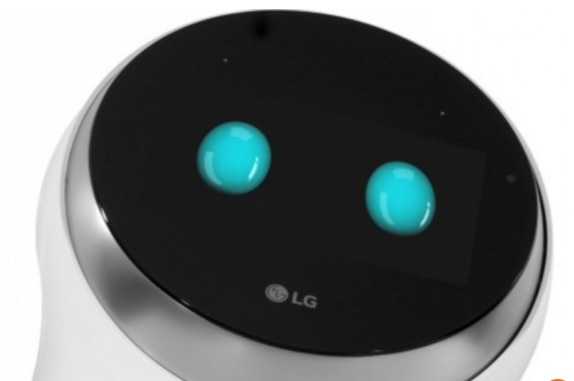Voice-activated home automation expected to gain momentum this year, according to research from the Consumer Technology Association

One’s relationship with the connected home has been a fairly one-sided affair until now. You voice-command your digital assistant, and they (hopefully) respond.
In 2018, it’s all about the conversation. LG’s Tim Alessi summed up the sentiment of brands presenting at CES 2018 in Las Vegas in January when he said: “2018 will be the tipping point for the smart home, and for the smart, connected lifestyle.” It’s all courtesy of artificial intelligence (AI), which leading brands will start incorporating into their consumer products from this year.
Smart home was again one of the dominant themes at CES 2018, the global stage for innovation featuring technology that changes lives. Other hot trends identified included voice and deep machine learning, 5G connectivity, self-driving tech, robotics, AR (augmented reality), VR (virtual reality), biometrics, security and sports.

The latest research from the Consumer Technology Association (CTA), which owns and produces CES, suggests that voice-activated home automation will gain momentum this year. The industry association’s research forecasts that sales in the category – including smart thermostats, smart smoke and carbon monoxide detectors, IP/Wi-fi cameras, smart locks and doorbells, smart home systems, and smart switches, dimmers and outlets – will reach 40.8 million units in 2018 (a 41 per cent increase over 2017), earning US$4.5 billion (a 34 per cent increase). While this research relates to the US, it is regarded as a global bellwether. (Separate research, by Statistica, predicts that revenue in the smart home market in Hong Kong will amount to US$204 million in 2018).
Receptive as we may be to home automation, Hongkongers have known the frustration of commands getting lost in human-to-machine translation, or the hit and miss integration of voice control to existing devices. While LG’s new AI home helper, CLOi, let the team down on launch day (she “had a moment” during the CES press conference, and stopped responding altogether) it wasn’t before strutting her stuff, conversing in a clear, human-like voice and even intuiting her master’s needs (for instance, today he’ll be going to the gym, so the laundry wash cycle is set to a light load for workout clothes).
CLOi is the first in a family of service robots LG is developing in parallel with ThinQ, the company’s AI brand for consumer electronics and home appliances. Both CLOi and ThinQ are designed to take advantage of LG’s DeepThinQ deep learning technology, delivering “both emotional interaction and innovative convenience”, the brand says.
Panasonic’s Michael Moskowitz affirmed that his brand has focused on developing the “listening quality” of voice-activated smart home devices, to wit its new AI-powered Panasonic GA 10 smart speaker, operated via Google Assistant.
Moskowitz noted the convenience of asking questions of a device and having it respond, but said the main reason consumers buy smart speakers is to personalise their music. “Where current voice assists have typically come up short is in their sound quality,” he said. “[With GA 10], we’ve stepped in and reimagined the smart speaker listening experience – now, consumers don’t have to sacrifice convenience for quality.”
In its press conference, Samsung acknowledged that getting smart devices to work together isn’t always easy – it’s “still fragmented & complex,” said Kim Hyun-suk, president and head of Samsung’s consumer electronics division and Samsung Research.
Samsung sells half a billion connected devices worldwide each year. Its vision is to “eliminate IoT fragmentation” by integrating Bixby, the brand’s voice-powered digital assistant for phones, into domestic devices.
“At Samsung, we believe IoT should be as easy as flipping a switch,” Kim said. Bixby lets consumers control just about anything – music, content, and their home, he noted, adding: “We are taking Bixby to the next level, to be so intuitive that it understands you, and can figure out what you need before you even have to ask.”
Joe Stinziano, executive vice-president of Samsung Electronics America, said select Samsung smart TVs and new Family Hub refrigerators will have voice control via Bixby in 2018. “With devices and services working together and infused with intelligence, in-home activities become easier,” he said.
